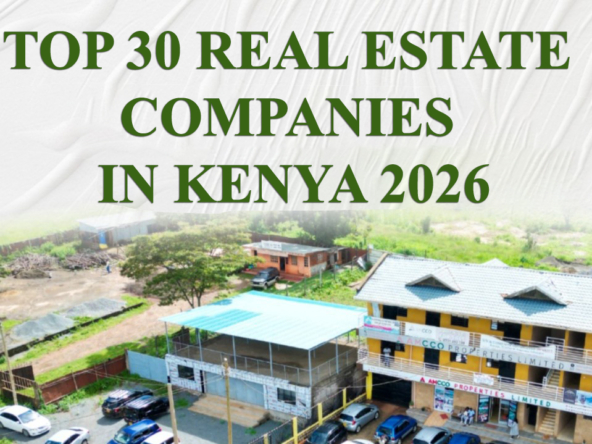Land is King: Unpacking Kenya’s Enduring Preference for Land Investment in 2025
In Kenya’s dynamic real estate landscape, one investment class consistently captures the hearts and minds of investors: land. The Kenya National Bureau of Statistics (KNBS) Economic Survey 2025 revealed a telling statistic – a staggering 61.1% of real estate-related loans are channeled towards land acquisition. This profound preference is not merely a market trend but a reflection of deep-seated cultural values, perceived financial prudence, and the tangible reality of value appreciation, especially in rapidly developing satellite towns.
The Cultural Bedrock of Land Ownership:
For many Kenyans, land is far more than a commodity; it’s a symbol of wealth, a cornerstone of legacy, and a tangible connection to heritage. Owning land is often viewed as a significant life milestone, signifying independence and the foundation for building a lasting future for one’s family. Unlike structures that can deteriorate, land is perceived as an enduring asset whose value rarely depreciates, a belief that heavily influences financial decisions. This cultural reverence for land often positions it as the primary investment goal, even before considering home construction.
Financial Prudence and Flexibility:
Beyond cultural significance, practical financial considerations drive the preference for land.
- Appreciation Potential: Land, particularly in strategic locations, has demonstrated consistent value appreciation. Emerging areas and satellite towns around major urban centers like Nairobi have seen land values surge, sometimes by up to 10% year-on-year in places like Kitengela, Thika, and Nanyuki.
- Lower Initial Outlay & Maintenance: Compared to developed properties, acquiring land, especially in developing areas, can be relatively more affordable. It also typically involves lower maintenance costs than a built property.
- Flexibility: Land ownership offers unparalleled flexibility. A plot can be held as an appreciating asset for future resale, developed incrementally as finances allow, or used for agricultural purposes. This contrasts with the immediate and long-term financial obligations tied to a mortgaged home.
Hotspots and Infrastructure’s Midas Touch:
The narrative of land value appreciation is most vividly playing out in satellite towns and emerging economic corridors. Locations such as:
- Kitengela, Thika, Rwaka, Kikuyu, Joska, Kiambu, and Athi River are frequently cited as development hubs experiencing substantial growth. This boom is largely propelled by significant infrastructure developments like the Nairobi Expressway, various bypasses, and the dualling of major roads. These projects enhance connectivity, reduce commute times, and effectively unlock the investment potential of peripheral areas.
Implications for the Broader Market:
While the “land is king” sentiment drives wealth creation for many, it also has implications for the broader housing market. A strong focus on land acquisition means substantial capital can be tied up in undeveloped or speculatively held plots. This can potentially slow down the conversion of land into actual housing units, a factor that policymakers and developers must consider in the context of national housing goals like the Affordable Housing Program.
The Future of Land Investment:
As Kenya continues its urbanization journey and infrastructure expands, the strategic acquisition of land is likely to remain a popular investment avenue. For investors, the key lies in identifying high-growth potential areas, conducting thorough due diligence (including title deed verification ), and understanding the long-term development plans for a region. While the allure of land is strong, informed decision-making remains paramount to navigating this promising yet evolving market.




